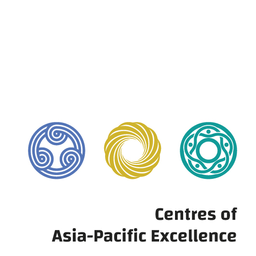The academics analysing world politics for Aotearoa
International politics expertise is crucial for Aotearoa New Zealand’s future, and it is in everyone's interests to foster it, according to academics who spoke to The Context: Asia-Pacific.
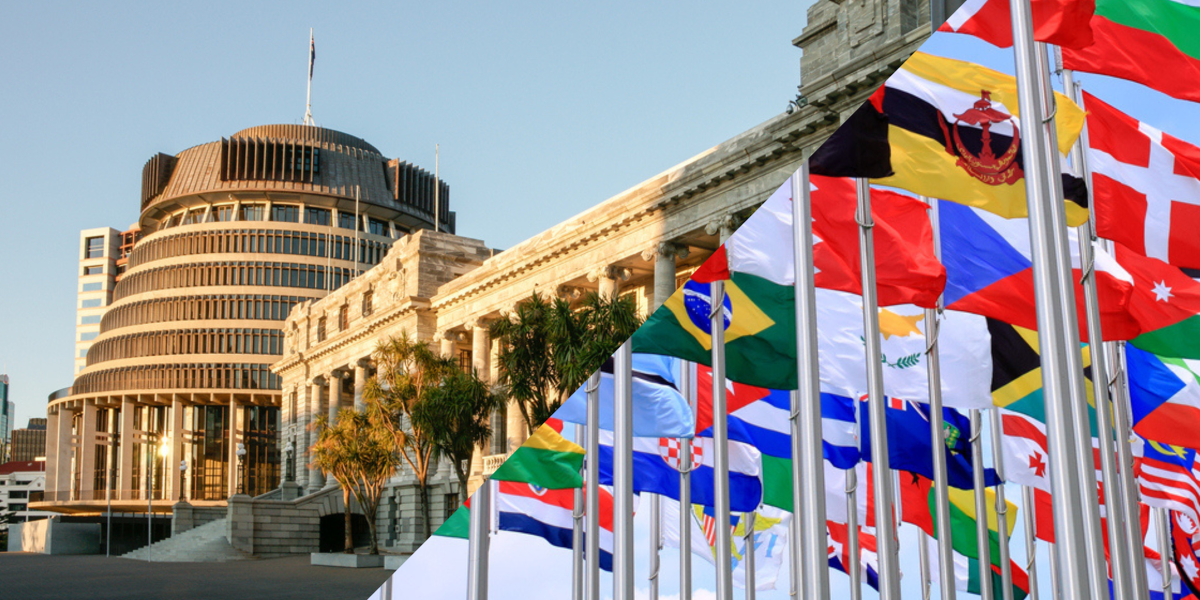
- Aotearoa New Zealand has exceptional academics helping us to navigate our Asia-Pacific relationships, but worry is rising that their numbers are decreasing and their role is undervalued.
- Strong local expertise on international affairs is in everyone's interests. Not only to inform officials and business people, but also to facilitate informed public debate and consensus about our national interest.
- As part of a series on Aotearoa New Zealand's Asia-Pacific academic experts, The Context Asia-Pacific spoke to International Politics academics about their role in international policy, the need for an informed public, and the challenges facing International Politics academia.
New Zealand’s Asia-Pacific experts
Around twenty International Politics academics (not including postgraduates) with some Asia-Pacific focus can be found across New Zealand's universities. They generally specialise by region, and by theme, such as diplomacy, economics or security. Commonly, they explore a mix of regions or countries throughout their career. Several cover the Asia-Pacific as a whole, while others look at defined regions such as Northeast Asia, Southeast Asia or South Asia. Some tend to specialise in specific countries, such as China, Korea or Japan.
While these scholars share a common interest in relationships between states, they explore the topic through different lenses or perspectives. These include, domestic politics and economics, nationalism and identity (including in relation to territory disputes); critical theoretical lenses such as peace and conflict studies, feminism, or postcolonialism; nuclear proliferation; and security alignment and power politics, including great power rivalry.
You can find links to information about a selection of International Politics academics and the regions and topics that they study, in the drop down menu below.
International Politics academics in New Zealand
Asia-Pacific
David Capie (Security alignment and power politics), Te Herenga Waka Victoria University of Wellington
Alexander Bukh (Nationalism and identity), Te Herenga Waka Victoria University of Wellington
Xiaoming Huang (Domestic politics and economics), Te Herenga Waka Victoria University of Wellington
Alex Tan, (Domestic politics and economics), University of Canterbury
Northeast Asia (Including China, Japan and Korea)
Anne-Marie Brady, (China, security alignment and power politics), University of Canterbury
Nicholas Khoo (China, security alignment and power politics), University of Otago
Stephen Noakes (China, domestic politics and economics), University of Auckland
Jason Young, (China, domestic politics and economics, security alignment and power politics), Te Herenga Waka Victoria University of Wellington
Shine Choi (Korea, nuclear proliferation; critical theoretical lenses), Massey University
Ria Shibata (Japan and Korea, climate, peace and conflict, nationalism and identity; critical theoretical lenses), University of Auckland
Southeast Asia
Lee SungYong (Critical theoretical lenses, peace and conflict) University of Otago
James Ockey (Thailand, Nationalism and identity), University of Canterbury
Fabio Scarpello (Domestic politics and economics) University of Auckland
Lena Tan (Indonesia, Critical theoretical lenses, postcolonialism), University of Otago
South Asia
Manjeet Pardesi (Security alignment and power politics), Te Herenga Waka Victoria University of Wellington
Security studies including the Asia-Pacific
Van Jackson (Nuclear proliferation; critical theoretical lenses), Te Herenga Waka Victoria University of Wellington
Reuben Steff (Security alignment and power politics), University of Waikato
Why we need International Politics academics
Chances are that few people would recognise the names in the above list, even if international affairs are mentioned and dissected in local media almost every day. To be sure, many academics do offer their knowledge publicly, but you need to know where to find it. Similarly, the young people who know of this cadre of experts and dream of following in their footsteps is an equally rare group.
But there are good reasons for a country like New Zealand to build a strong pool of International Politics academics with a prominent place in public discourse. These include the need for expertise for government and business, democratic checks and balances, and the role of domestic consensus in foreign policy. While these roles are not always clear cut, they are more important than ever, say the academics we spoke to.
Expertise for the Government
First and foremost, New Zealand is an open, export-oriented country with a strong Asia-Pacific focus. Seven of it's ten biggest export markets, for example, are in Asia. It is crucial for New Zealand’s long-term economic stability that its business sector and economic policymakers have access to specialised understanding of the region.
It is crucial for New Zealand’s long-term economic stability that its business sector and economic policymakers have access to specialised understanding of the region
Second, the growing rivalry between the US and China creates tensions across the Asia-Pacific–in other words, New Zealand's neighbourhood. Important decisions lie ahead, with AUKUS being one prominent example. Regardless of how New Zealand navigates AUKUS, it is unlikely to be the last dilemma it faces regarding its security ties to Australia and the US on one hand, and its considerable economic relationship with China.
Other recent events to have significantly affected our foreign policy include the US decision to not join failed trade deal TPP and remain outside the successfully concluded CTPPP, and the handling of Covid across the region.
Asia expertise is crucial for New Zealand’s future, and it is in the Government’s interest to foster it.
Whether for health, trade or security policy, to make sound decisions and move confidently, New Zealand needs to fully understand the situation, especially in relation to its own national interests. This is a vital role for academics: to inform the government’s decision-making process. Asia expertise is crucial for New Zealand’s future, and it is in the Government’s interest to foster it.
For that purpose, Associate Professor Jason Young argues that it is crucial to have area studies experts in New Zealand who understand Asia and other key regions. Crucial to this are people with sufficient language skills to conduct research into Asia, that takes New Zealand’s interests into account, rather than simply drawing on expertise from other countries.
Democratic checks and balances
This expertise doesn’t just benefit government decision-makers, but also contributes to our democracy. New Zealand’s foreign policy is ultimately decided and implemented by the Prime Minister and the cabinet, particularly the foreign minister, as well as relevant ministries like the Ministry of Foreign Affairs and Trade (MFAT) and the Ministry of Defence.
While there have been exceptions across different New Zealand governments, MFAT's role is particularly significant. Leaders of both major parties take its view very seriously and tend not to differ from it. This can be seen in New Zealand's broad foreign policy consensus. During the second leaders debate in the 2023 election, for example, National Party leader Christopher Luxon noted convergence between the two parties on foreign policy: “I think it’s...a good thing, frankly, that ...the National and Labour Parties, whoever’s in government,...has a pretty consistent and aligned view on foreign affairs.” (at 1:19:25 – 1:20:35)
While establishing cause and effect requires deeper analysis, this aligned view generally converges with MFAT recommendations.
There are certainly benefits to a stable foreign policy across different political administrations. However, leaving such considerable decision-making power in the hands of unelected officials makes it all the more important to have strong mechanisms of critique and accountability towards the government.
The democratic mechanisms for input into government policy include elections, the media, and various interest groups. All of these are strengthened when they include input from academics who offer alternative, independent perspectives and a voice that can critique the political establishment.
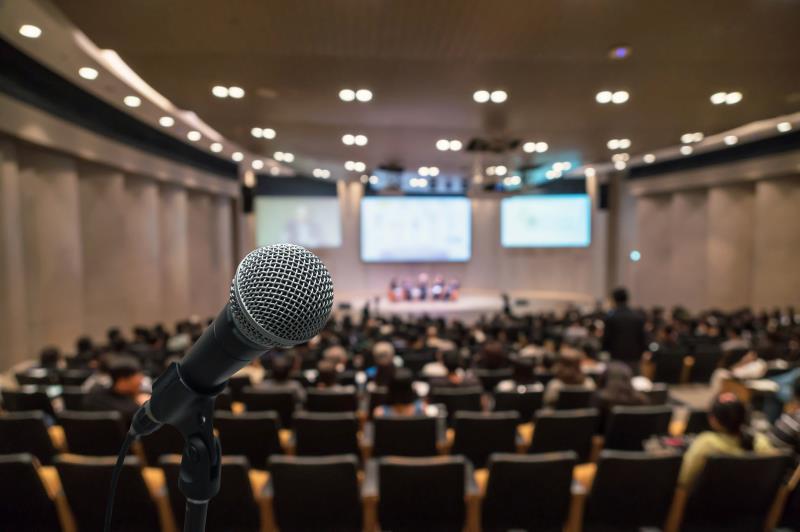
Do we need more debate?
While in theory New Zealanders have many avenues for democratic participation, in general they appear quite happy to leave foreign policy in the hands of a select few in Wellington. Certainly, in the 2023 election foreign policy was a relatively low interest issue. Shortly before ballot day, Professor Robert Patman wrote, “The world is at an inflection point in history. […] However, these issues have yet to feature prominently in the New Zealand general election scheduled for 14 October. […] To some degree, this reflects the fact the Labour and National leaderships have adopted a largely bipartisan approach to foreign policy.”
Associate Professor Jason Young concurs: “Discussions in my opinion are pretty thin”, he says. In a way, this is also part of a free society. As Young puts it:
“It is up to the public to decide - the flipside of democracy is, if they don’t want to be engaged, then that’s their choice”.
So perhaps low public engagement is not a terrible thing. However, in that case the role of academics as a check on the government becomes even more important. Someone needs to pay attention to what the government decides, even if the New Zealand public does not.
On the flipside, some lament the lack of meaningful debate and call for more effort to engage the New Zealand public in foreign policy debate. This includes former Prime Minister Helen Clark, who on August 4 tweeted in relation to defence and security policy, “[...]NZ needs a full public debate on this & not an officialdom-driven realignment”.
MFAT itself strongly endorses this view. From July to August of this year, the government released multiple reports on national security and foreign policy. In one report, MFAT states that “there would be considerable value in having a more deliberate national conversation on New Zealand’s foreign policy...”
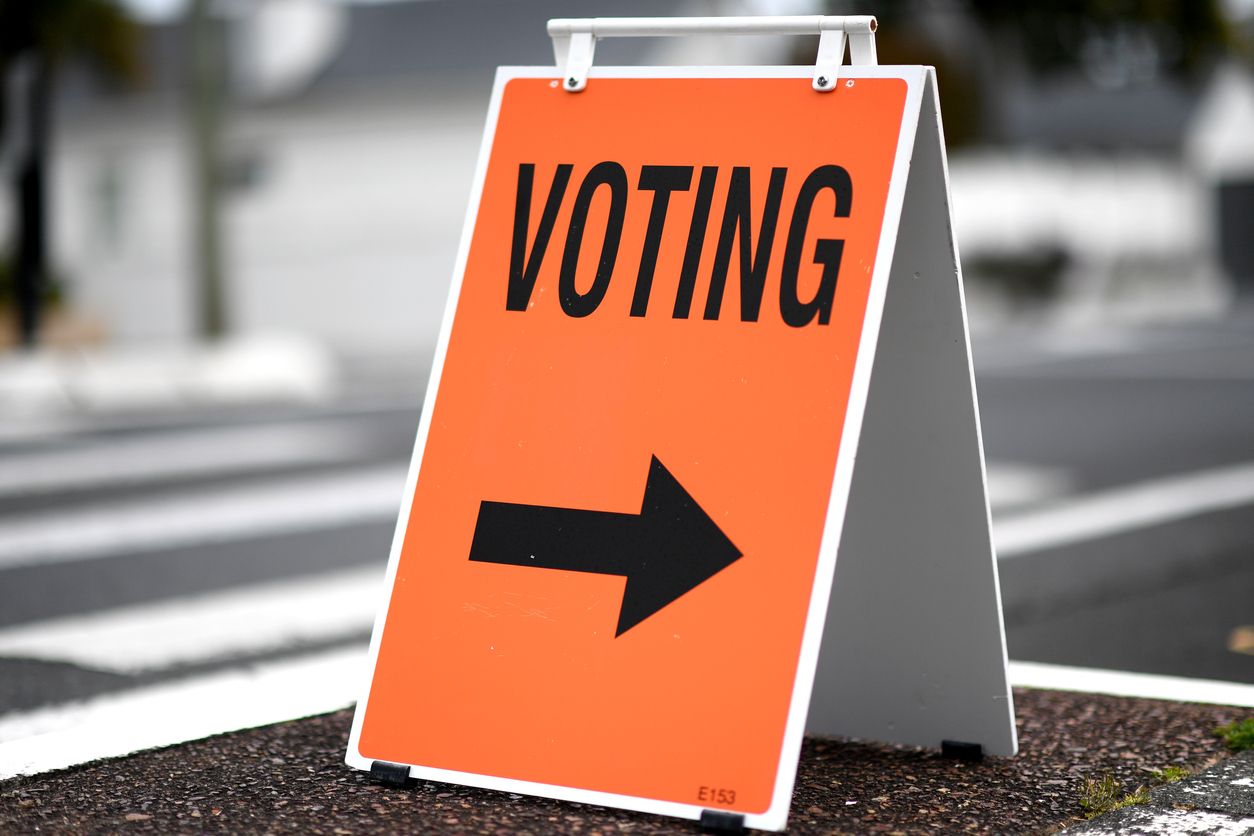
Consensus-building at critical junctures
It is in New Zealand’s interest to give the public stakes in major foreign policy decisions, in what is often referred to as an increasingly contested regional environment. But the 'contest' of ideas should drive towards consensus rather than political division.
Dr. Peter Grace, who teaches at the University of Otago, argues:
“Taxpayers will be the ones funding the policy and the general public may need to be mobilised in support. […] If there is backlash to a certain foreign policy, this will eventually affect decision-makers in the form of audience cost, for instance as votes”.
Even if New Zealanders might be happy to sit back and let the government handle things in the short-term, this is undesirable for New Zealand's interests. MFAT itself refers to the critical importance of obtaining 'social licence' for policy.
So it is imperative that the public be strongly encouraged to contribute to foreign policy decisions, at a particularly important point in New Zealand's history. As Associate Professor Nicholas Khoo, from the University of Otago, notes,
“We are at the most significant turning point in New Zealand’s foreign policy since the 1980’s and there’s hardly any debate”.
Khoo highlights two important ways in which a foreign policy that is informed by debate will contribute to New Zealand’s national interests. First, public input simply produces a more considered and viable policy in a liberal democracy. As Khoo notes,
“New Zealand’s foreign and defence policy deserves a critical evaluation, far removed from the instant response world of cyberspace. This is to allow the spectrum of views on national security to be systematically laid out and critiqued in a rigorous way, and when the dust has settled, to be adopted as national policy.”
Second, such a policy will be more robust in the face of inevitable challenges. Khoo notes that without public input during the decision-making process, the government’s choice may face backlash, become politically untenable and could end up being reversed at significant cost to the country’s interests.
Academics can contribute to consensus building efforts in many ways. Grace suggests, for example, a study of the public’s awareness of various key issues. This would tell the government how easily they could expect to mobilise the public, if necessary.
Informing the public and facilitating debate
Academics do indeed contribute a great deal to New Zealand's public discourse, and it's a unique contribution. As Young says:
“Academics should, and do, contribute to public debate through lectures, op-eds, and media engagement. […] They have the luxury of working at institutions that value critical thinking, and they aren’t beholden to any particular interest group, economic interest, or government position”.
Academics are almost a rarity in their ability to provide long-form and in-depth analysis rather than catchy political soundbites. Government officials generally need to argue for already agreed government policy. Politicians are under pressure to either attack their opponents' views or say what will gain votes. By contrast, academics can provide independent, evidence-based information and arguments both for and against different options.
And of course, they have their own interpretation on events, As one commentator suggested, the role of academics is “basically I did the readings so you don’t have to, with an ideological angle added on”.
This is another way in which academics contribute to the vibrancy of our democracy. In Young’s words: “a prerequisite of a functioning democracy is having an informed public.”
So, unless foreign policy direction is to be left entirely to MFAT officials’ discretion, the public plays a crucial role in electing their representatives. To make sound decisions about which foreign policy platform to support, people need to have access to accurate information, and academics should be in a good position to supply it. They can engage with the public, offer up alternative perspectives, and so help to shape a well-informed citizenry. But in practice it's not so easy.
Knowledge is the biggest deficiency
Significant difficulties face academics working in the field of International Politics, as with other related areas, such as area and cultural studies and languages. So much so, Young points out, that the main issue is not need for more debate, but rather more expertise to begin with.
“We are woefully underprepared in a world that has changed considerably. Public debate is one part of that, but we are also really, really lacking in critical mass of expertise that can contribute to debate.”
Thus, rather than the transfer of knowledge, the generation of knowledge is where the biggest deficiencies are.
Young laments that, while there are scholars of international relations, and scholars specialising in languages and cultures, there is a lack of specialists that combine both. This should be considered a pre-requisite to truly understand Asia, which is becoming ever more crucial in the current global environment. Moreover, at a time when we need policies to grow this pool of expertise, it is being left to wither.
Young observes that businesses and governments fail to emphasise these skills as necessary competencies. So it's not surprising that students undervalue these skills when they decide what to study, which in turn results in less funding for the corresponding departments. Addressing this without comprehensively restructuring the tertiary education funding model will be difficult.
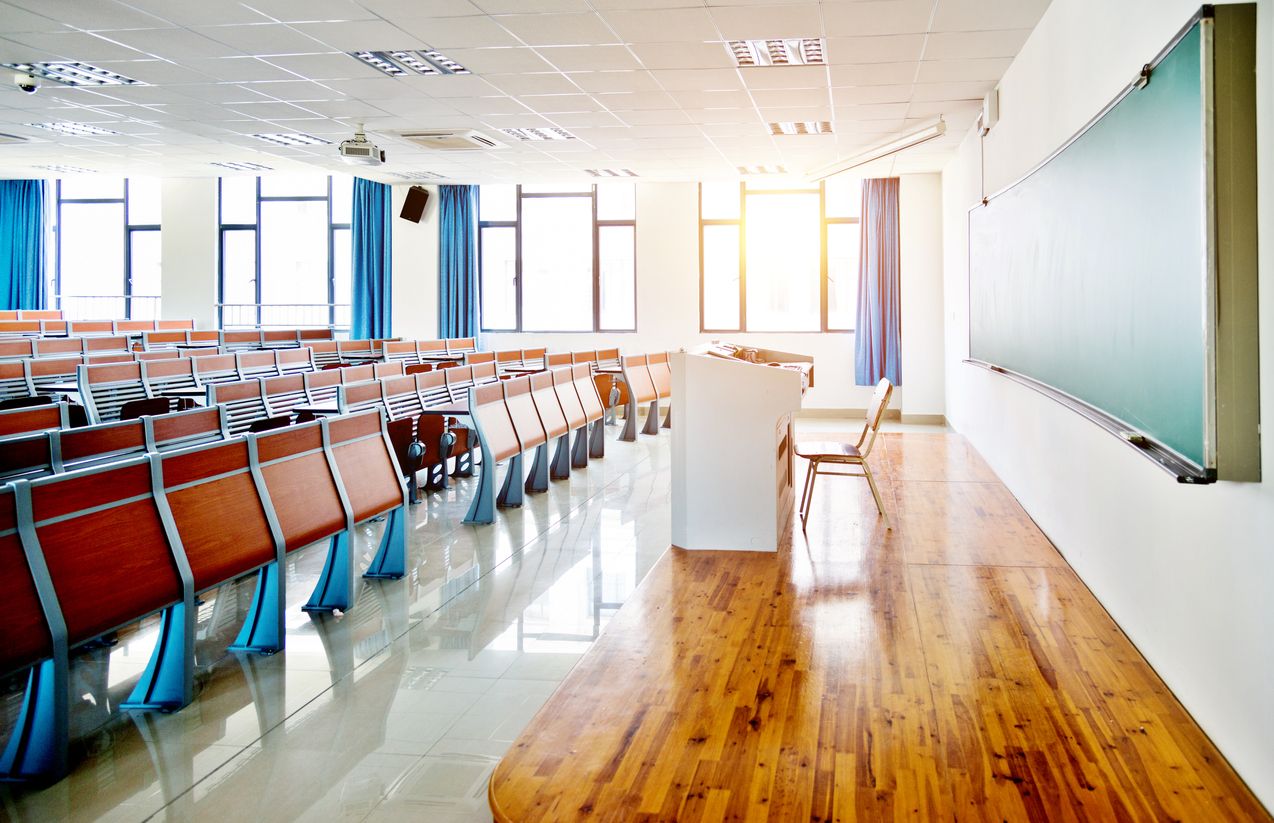
Navigating New Zealand’s future
Tough choices lie ahead. Big trends such as US-China rivalry come with ever more complex trade and security arrangements, on top of managing its relationships with other states.
Rather than forging ahead without the public on board, New Zealand’s next steps should be based on solid consensus and thorough consideration of the options. Developing and using its own international politics expertise will give it the best chance of making well-informed decisions in line with its unique interests and values.
As a final note, building this expertise is not just about New Zealand's local interests, but also our place and contribution in the world. As Patman observes, New Zealand politicians and academics often describe New Zealand as a small state, but the country is not necessarily seen that way on the international stage.
“There is sometimes a tension between New Zealand’s perceived standing in the world and its willingness to contribute or speak out on big international issues.” says Patman.
* Quotes in this article may have been edited for clarity and brevity. The views expressed in this article do not necessarily represent the views of the Centres of Asia-Pacific Excellence.
Read next
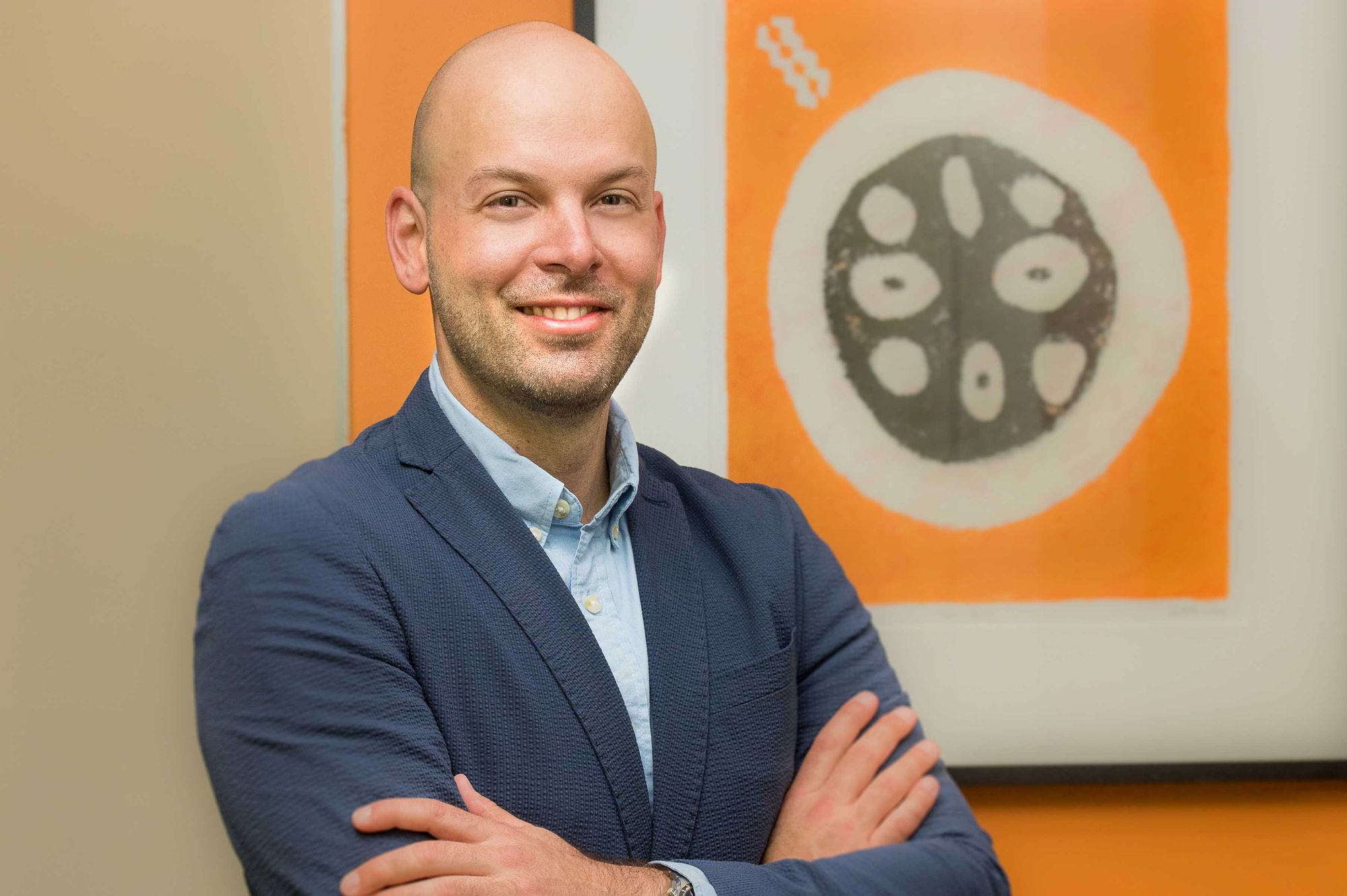

Let us know what you would like to know
Connect with us by answering these three quick questions

